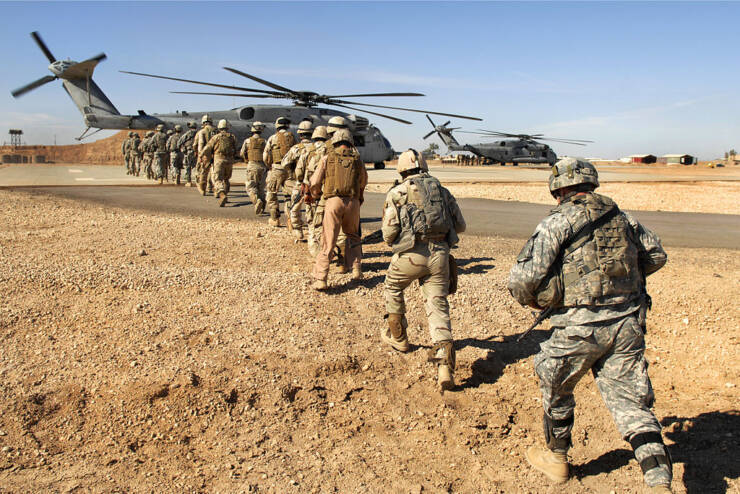
Tel Aviv. The US has in recent weeks increased its military presence in the Gulf region. Israeli sources said on May 18 that the change in the US policy is in part a reaction to the very detailed intelligence about Iran that was conveyed to the Americans when the Head of the Israeli Mossad and other Israeli defence officials visited Washington and briefed their counterparts. While in Washington, head of the Israeli Mossad met President Biden and after this meeting Israeli sources got the impression that the US has a long way to go in talks with Iran before it agrees to a full compliance of the 2015 nuclear deal.
The special deployment began with the arrival of two B-52. This brings the total number of this heavy bomber in the area to six. Unlike in recent months, the B-52 are stationed in the Gulf region. Before that, this heavy bomber used to perform a flight to the Gulf area and back as a show of power. The US Central Command has announced that an F-18 Hornet fighter squadron has arrived in the Middle East region. The Americans kept the aircraft carrier Eisenhower in the Arabian Sea after announcing the withdrawal of NATO forces from Afghanistan. The Americans introduced a new submarine into the Persian Gulf, the “Georgia” submarine carrying more than 150 Tomahawk missiles.
On May 10, the US department of defence announced that 13 “fast boats” with the Islamic Revolutionary Guard Corps Navy precariously approached US Navy and Coast Guard vessels that were operating in the Strait of Hormuz. After those ships failed to heed warnings to move away to a safe distance, the US fired warning shots, Pentagon Press Secretary John F. Kirby said.
During a briefing today at the Pentagon, Kirby said it was six US Navy vessels that were escorting the guided missile submarine USS Georgia which were involved in the incident. “This group of fast attack boats approached the US formation at high speed, closing in as close as 150 yards,” Kirby said. “After following all the appropriate and established procedures involving ships: horn blast, bridge-to-bridge radio transmissions and other ways of communicating, the [US] Coast Guard Cutter Maui … fired approximately 30 warning shots from a 50 caliber machine gun. After the second round of warning shots, the 13 fast-attack craft from the IRGCN broke contact.” Kirby said the Coast Guard cutter fired warning shots while the IRGCN ships were at the 300-yard mark and then again when they were at the 150-yard mark.
It’s not clear now under whose direction those IRGCN ships were operating, Kirby said. But he also added that harassment from the IRGCN is nothing new. The U.S. response to the harassment, Kirby said, was appropriate for the situation the American ships were in.
The US Department of Defence says it has sent large reinforcements near the Iranian border as a direct warning to Tehran that President Joe Biden’s government takes seriously and takes all necessary measures to respond to any Iranian attack on US forces or an attack by Iranian-affiliated armed groups in Iraq. In recent months the US sent signals that it has decided to decrease it military presence in the Gulf area. That had an immediate effect and Saudi Arabia looked for new negotiations channels with Iran, its long time enemy.
Israeli defence officials that visited Washington in recent weeks expressed their frustration from the American policy and explained that the withdrawal of the US from the Gulf region will have serious implications for the Gulf states, among them those who recently normalized their relations with Israel. These states are getting ready to the day when US forces are completely out of the region and that has brought some of them to start negotiations with Israel about the purchase of very advanced defence systems.
Dr. Mordechai Keidar a specialist of Iran said that the Gulf states understand the eagerness of Washington to achieve an accord with Teheran and feel betrayed “no wonder they look for assistance in other places”.
He added that Israel should be very worried by the US policy but understands that at this point there is no way to change it.
-The writer is an International Roving Correspondent of the publication.








